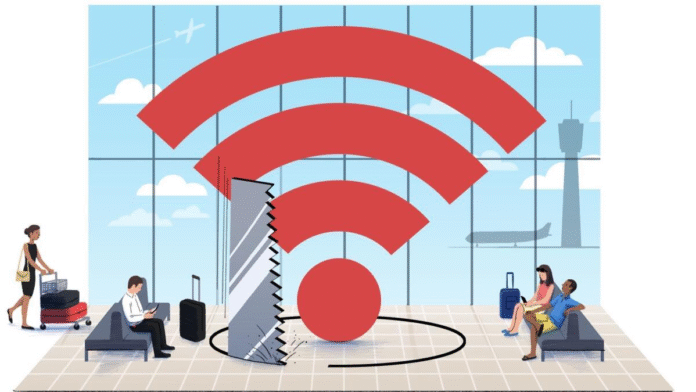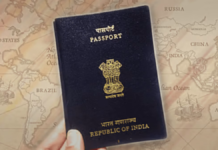In today’s hyper-connected world, free Wi-Fi has become as expected in airports as boarding gates and security checks. But while logging on might seem like a harmless convenience, cybersecurity experts caution it may be one of the riskiest decisions a traveler can make.
“It’s definitely among the worst things you can do at an airport,” The issue? Airport Wi-Fi networks are often unencrypted, unprotected, and—more worryingly—prime hunting ground for cybercriminals.
The Hidden Dangers of Public Wi-Fi
Public Wi-Fi, such as that found in airports, is a shared internet connection operating on a largely unsecured network. This creates an open environment for hackers to intercept personal data, including login credentials, credit card information, and even install malware without the user’s knowledge. According to a recent Forbes Advisor survey of 2,000 public Wi-Fi users, 40% reported having their data compromised while using these networks. Still, nearly two-thirds of respondents believed public Wi-Fi was “completely” or “somewhat” safe.
“Anything you do on airport Wi-Fi should be something you’d be comfortable with the rest of the world knowing about,” said John Breyault, Vice President of Public Policy, Telecommunications, and Fraud at the National Consumers League.
The risks are especially acute in airports, where downtime and poor mobile reception often drive travelers to seek out public internet. Criminals have adapted. Fake networks—known as “evil twins”—are increasingly used to trick unsuspecting users. A traveler searching for “O’Hare Guest Wi-Fi” may accidentally connect to a convincingly named lookalike, such as “Chicago Airport Free Wi-Fi,” operated by a scammer.
In one recent case, Australian authorities charged a man with creating rogue Wi-Fi networks in several major airports, including Perth and Melbourne, to steal personal data.
A Growing Cyber Threat
The consequences of connecting to insecure networks are significant. According to the FBI’s 2024 Internet Crime Report, Americans lost more than $16 billion to cybercrime last year—an all-time high and a 33% increase over 2023. Personal data breaches ranked among the agency’s top three most-reported complaints.
“As nearly all aspects of our lives have become digitally connected, the attack surface for cyber actors has grown exponentially,” noted B. Chad Yarbrough, operations director of the FBI’s Criminal and Cyber Division.
How to Stay Safe While Staying Connected
So what’s a traveler to do when mobile data is limited and connectivity is needed? Cybersecurity experts offer several precautions:
- Use a personal hotspot: Creating a mobile hotspot via your phone is one of the safest ways to access the internet at the airport. “You’re not sharing that connection with everyone else,” Breyault explains. “Your data will be much safer in transit.”
- Invest in a reputable VPN: A virtual private network (VPN) encrypts your internet connection, providing an additional layer of security—even on public networks. Hicks recommends choosing one from a well-established U.S.-based provider.
- Limit sensitive activity: Avoid logging into email, banking apps, or social media while on public Wi-Fi. “If you’re just checking the weather, that’s one thing,” says Breyault. “If you’re checking your bank account balance, that’s something different.”
- Verify the network: Always confirm the official airport Wi-Fi name with airport personnel before connecting. “Eliminating impostor networks removes most of the real threats,” Hicks said.
Digital Vigilance Is the New Travel Essential
As digital threats become more sophisticated, awareness and caution are essential travel tools—just like a passport or boarding pass. “Scammers are increasingly using the internet to steal Americans’ hard-earned savings,” Yarbrough stated in the FBI’s report. The best defense, experts agree, is to assume that public Wi-Fi is just that—public.
When in doubt, remember: if your online activity isn’t something you’d want broadcast to everyone in the terminal, it’s best to wait until you’re on a secure, private connection.











